Hyundai Genesis: Why Didn’t My Air Bag Go Off in a Collision? (Air bags are not designed to inflate in every collision.) / Air bag non-inflation conditions
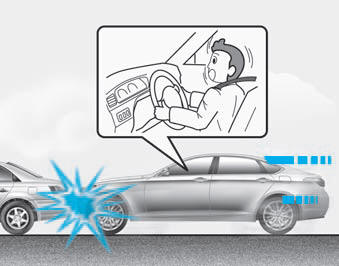
In certain low-speed collisions the air bags may not deploy. The air bags are designed not to deploy in such cases because they may not provide benefits beyond the protection of the seat belts.
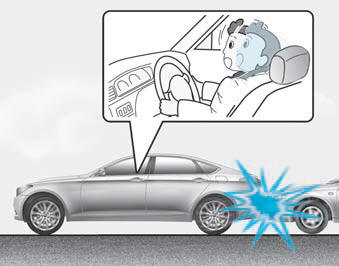
Front air bags are not designed to inflate in rear collisions, because occupants are moved backward by the force of the impact. In this case, inflated air bags would not provide any additional benefit.
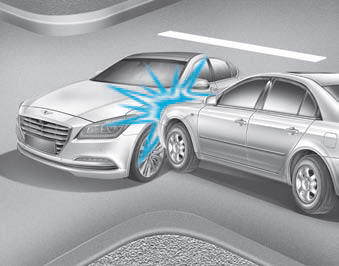
Front air bags may not inflate in side impact collisions, because occupants move in the direction of the collision, and thus in side impacts, front air bag deployment would not provide additional occupant protection.
However, side impact and curtain air bags may inflate depending on the intensity, vehicle speed and angles of impact.
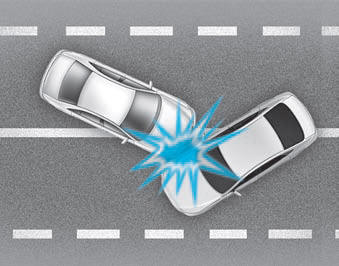
In an angled collision, the force of impact may direct the occupants in a direction where the air bags would not be able to provide any additional benefit, and thus the sensors may not deploy any air bags.
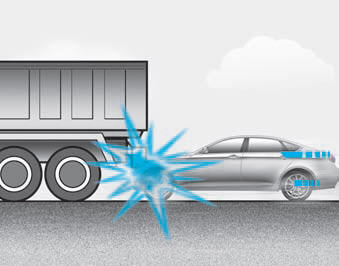
Just before impact, drivers often brake heavily. Such heavy braking lowers the front portion of the vehicle causing it to “ride” under a vehicle with a higher ground clearance. Air bags may not inflate in this "underride" situation because deceleration forces that are detected by sensors may be significantly reduced by such “underride” collisions.
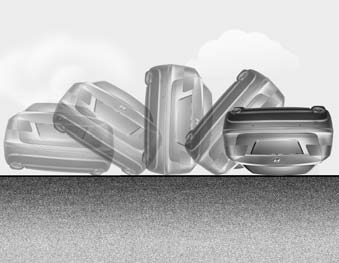
Front air bags may not inflate in rollover accidents because air bag deployment could not provide protection to the occupants.
However, side impact and curtain air bags may inflate when the vehicle is rolled over by a side impact collision, if the vehicle is equipped with side air bags and curtain air bags.
Also, if the vehicle is equipped with a rollover sensor, side impact and curtain air bags may inflate in a rollover.
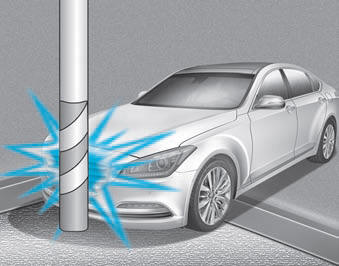
Air bags may not inflate if the vehicle collides with objects such as utility poles or trees, where the point of impact is concentrated and the collision energy is absorbed by the vehicle structure.
 Air bag inflation conditions
Air bag inflation conditions
Front air bag
Front air bags are designed to inflate
in a frontal collision depending on
the intensity, speed, or angles of
impact of the front collision.
Side impact and curtain air bags
...
 SRS care
SRS care
The SRS is virtually maintenancefree
and there are no parts you can
safely service by yourself. If the SRS
air bag warning light does not illuminate
when the Engine Start/Stop button
is in t ...
Other information:
Hyundai Genesis (DH) 2013-2016 Service Manual: Description and Operation
System Overview RPAS (Rear Parking Assist System) is an electronic driving aid that warns the driver to be cautious while parking or driving at low speed. The sensor uses ultrasonic waves to detect objects within proximity of the vehicle. RPAS consists of four RPS sensors which are detecti ...
Hyundai Genesis (DH) 2013-2016 Service Manual: Components and Components Location
Component Location 1. Fuel filler door open switch2. Fuel filler door release actuator ...
